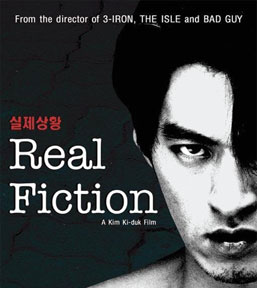Iranian film for SAARC
By Kalakeerthi Edwin Ariyadasa
"The Iranian films have a distinctively Iranian cinematic language,
that champions the poetry in everyday life and the ordinary person, by
blurring the boundaries between fiction and reality, feature film with
documentary. - Film critic Rose Issa - in "Real Fictions".
In recent times, the SAARC Cultural Centre Colombo, displayed on many
an occasion, its fascinating capacity to intrigue film-goers, with the
least expected cinema surprises.
 With Karma from Nepal, the film-goers were jolted into a Shangri-la
of fresh film terrain, dominated by a young Bhikkhuni, armed only with
vulnerable innocence and unfailing devotion and faith. With Karma from Nepal, the film-goers were jolted into a Shangri-la
of fresh film terrain, dominated by a young Bhikkhuni, armed only with
vulnerable innocence and unfailing devotion and faith.
From the sub - Himalayan Kingdom of Bhutan, they introduced a
cinematic whiff, bearing a 'Song of the Wind," that whispers in the
seasoned ears of film-goers, the refreshing news of a gentle way of
life, led amidst the craggy grandeur of a mountainous domain.
True to its tradition, the current cinematic offering from the SAARC
Cultural Centre, is once again a film-package filled with titillating
surprises.
And, this latest presentation comes from Iran.
Historical process
Iran is the contemporary kingdom, that has evolved through a long and
intricate historical process, from the widely-renowned Babylonian
empire. This invariably makes modern Iran the prestigious legatee of
sumptuous cultural riches, that have accumulated over centuries.
Quite early in the modern era, to be exact, just five years after the
initial theatrical film presentation by the US inventor Thomas Alva
Edison - Iran produced its pioneering film.
But, the road, that the indigenous film industry of Iran had to
tread, was not always a comfortable hana-michi (flower-path). The
obstacles in the path of its progress, were at times, restrictions that
were internally imposed.
In spite of all that, today, Iranian cinema, occupies a significant
position, in the global community of film-makers. At many international
film events, Iranian films have won awards and accolades - bearing
eloquent testimony to the quality of their cinematic products.
The current SAARC presentation is titled 'Dig Beta', the English
significance of which is "Family Bond".
Impression
When you settle down to view the film, you are likely to get the
initial impression, that you are in for a wallow in the shallows.
You may tell yourself, that the film is not going anywhere as such
and that it is yet another cloying run-of-the-mill story about golden
oldies in their adorable sun-set days.
But, several initial minutes into the film, you get up and begin to
take notice.
The realisation eventually dawns upon you, that Director Nader
Moghaddas is taking you carefully for a dip in the depths of human
relations, in the contemporary society of urban disarray, prompted by a
relentless pursuit of urgent and instant material success.
The opening segment of the concerned dedication for each others'
well-being, displayed by the elderly couple, in the course of their
train passage from the country to the metropolis, throws into sharp and
disturbing contrast, the self-serving ego-mania bred by the
shekel-seeking restlessness of the city-dwellers.
Undiminished affection
In the train too, the ageing wife Talat, adopts her accustomed
attitude of care towards her old husband, as if they were still at home.
The husband indulges in his usual routines and pre-occupations comforted
by the assurance of his beloved wife's presence, to shelter him in the
cocoon of her undiminished affection.
The Director skilfully establishes that the elderly couple, is
eagerly looking forward to an emotional reunion with their grown-up
offspring.
As they approach the residence, they are full of hope of being
received by their children. But, they are met by a domestic and a
well-kept house. The old father cannot help but say, that they did not
come to see a beautifully maintained house, bereft of the love and
presence of their beloved children.
The children have no time for the two elders. Even if they have an
affection for their elderly parents, the children cannot see a practical
avenue through which this affection could be expressed.
Dilemma
In this continuing dilemma, that has arisen because those in the
generation of their offspring have not required the true meaning of
sustained human relations, the elderly couple is shifted from one
household to another.
These shifts enable the old couple to see through the myth of life
which has engulfed their children in this mega-city. The total film, is
a pronounced cinematic study of the erosion of wholesome human
relations.
In terms of the technique of story-telling, the film proves a highly
efficient production.
The elderly couple Talat and Kamali in the course of the portrayal of
their assigned roles, go well beyond impersonation and live the lives of
real individuals authentically, in the social context, in which they are
placed by the drama.
The cinematic tribute paid to the metropolitan Teheran is a
note-worthy highlight in the film.
The thematic urge of the film assumes the guise of a universally
valid warning to many countries in the present day.
Traditionally, in Asian territories, the family ties have been held
sacred.
In many eastern countries this attitude has begun to fade. It is a
wide-spread phenomenon in developing countries in our day, for the
younger generation to leave the bosom of their original family seeking
their fortunes abroad. There are some who leave their homes for good,
making helpless parents to make the pathetic enquiry 'where have all the
children gone?"
The need to strengthen family bonds is a positive and an inescapable
obligation. The film adds greater power to that pathetic question "What
has made our children give us up?"
|



